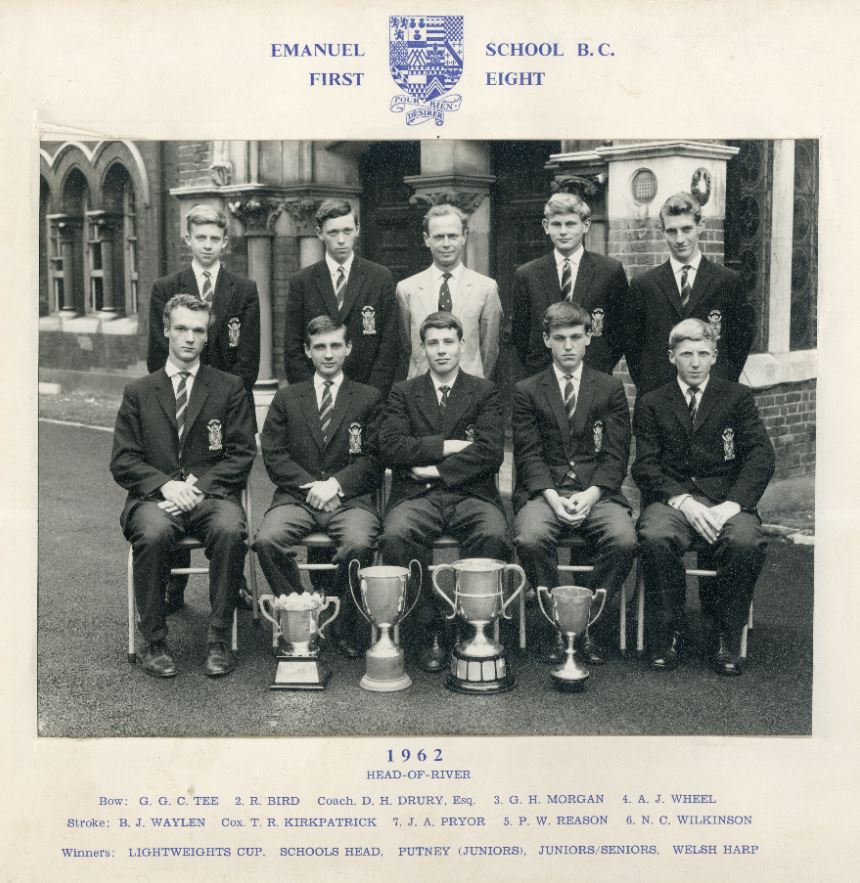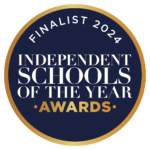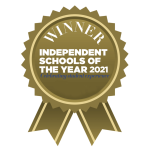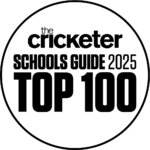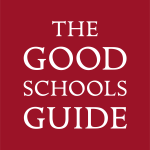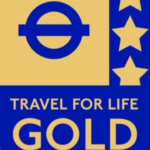We were delighted to catch up with Mr Grahame Capron-Tee (OE1956-63) for a wonderfully detailed interview, which gives a vivid depiction of school life in the 1950s and 1960s. Grahame holds a very special place in the annals of Emanuel School rowing, as he rowed (bow) in the first two, back-to-back, triumphs at the Schools’ Head of the River Race in 1962 and 1963, as well as the first time the school rowed at Henley. The fascinating interview also covers other key events from Grahame’s school career. Including life in the Combined Cadet Force (CCF) and his career as an engineer.
What do you remember of your time in 1A?
If you don’t mind, I will start with reference to my primary school. Along with thousands of others, I sat the 11+ selection test. Unlike the myth that has grown up, this was not a stressful process and it was well explained. The education system at that time recognised the difference between academically oriented pupils and those who would be better suited to more practical and vocational careers. The test was in three parts; Arithmetic, English and an “intelligence” test. I was selected for grammar school education and my parents wanted me to go to Dulwich College, but had heard about Emanuel being a good school so, along with my best pal, John Spicer, we went for the interview process where I met J.B.C. “Jack” Grundy and W.S. “Pump” Hipkins for the first time. It wasn’t intimidating or stressful and I was given a place starting in the coming September of 1956.
The first day, we all met in the Old Hall and were welcomed and, on the basis of our 11+ results, were given our designated classes. In those days, education was most positively for streaming so the least able would be able to have more dedicated teaching. I was selected for form 1A and Mr. Burton was my form master. I had already noticed the swishing gowns and also how the senior boys were like “men”. D.B Thomas was School Captain.
Our form room was on the top floor of the west side of the building, and we had to use the outside fire escape to get to the room. The streaming system made 1EX as the highest and 1C as the “lowest”.
We selected a Form Captain, Garlick, who had an older brother and so knew something of the way the school worked. And finally, we were shown our timetable. Mr. Burton was our math’s master and Mr. Lowes (“Lousy” Lowes) was for French.
The biggest change was in how we addressed each other. My pal John from primary school was now Spicer and I was Tee! It was a year of big change in my life and overall, I enjoyed it. The worst was, perhaps, being known as “weeds” and being thrown in the “pits” as an inauguration to secondary school life.
How did you get interested in rowing?
Sports was on Thursday afternoons in the lower school and I really didn’t enjoy rugby or cricket. So, when I heard about rowing, I thought that this was my “way out”! We had to travel to Putney and were issued with tickets for travel and we used Vesta Rowing Club’s facilities. My first outing was in a tub pair, with Colonel (Charlie) Hill coaching and coxing. I enjoyed being on the water and over the years progressed through fours and rum tums to VIIIs. We did some training on the rowing tank at school, in the “wilderness” area. In the 3rd year, we switched to Wednesday afternoons and Saturdays. My first serious crew was the 1st Colts VIII coached my Mr. Martin Fagg, the man who had a different tie for every day of the year.
During this time, we were busy collecting money for a new boathouse, ship halfpennies and portcullis threepenny pieces being among the favourite collections. Eventually we had enough to start and, as we all now know, the Wates brothers, whose company built the boathouse, kindly donated it to the school on completion. So we moved to Barnes and got used to catching the train from Clapham Junction to Barnes Bridge on Wednesdays and Saturdays, although I soon started cycling from home to Barnes on Saturdays. It was a major change and improvement, and we were all very proud of our new facility.
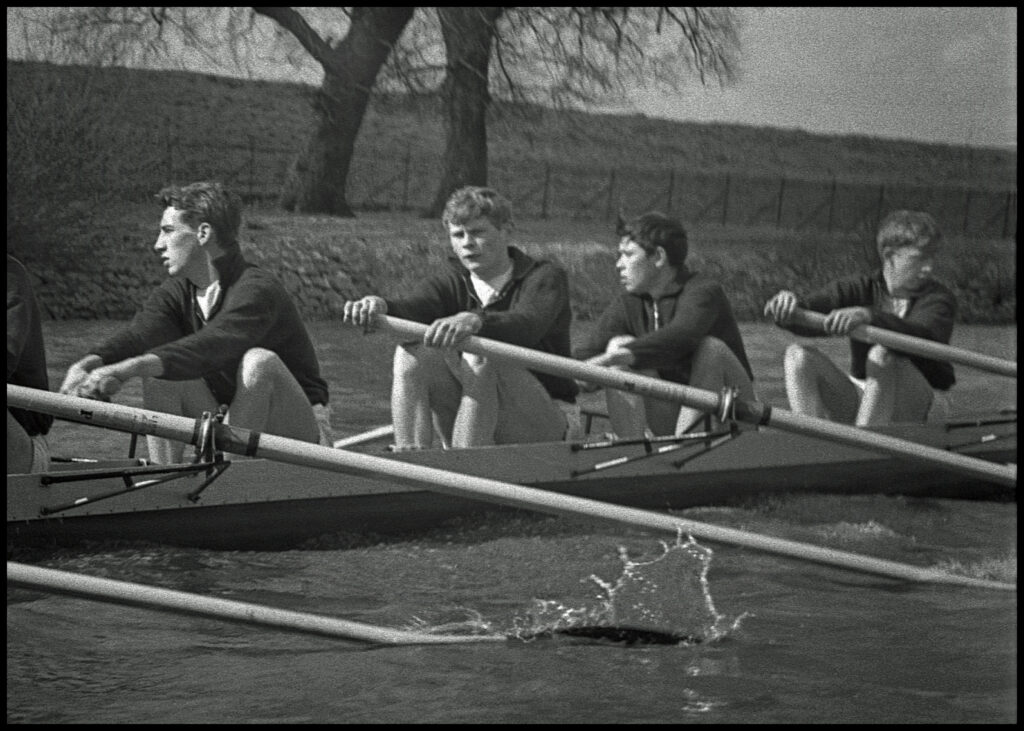
You competed during the dawn of the first golden age of Emanuel School rowing. How fondly do you remember this period of your life?
I was in the 5th form, “Upper 5 Science”, and the 1st Colts were the most successful crew, winning our schools league. However, the 1st VIII and 2nd VIII were not doing very well at all. Derek Drury was on exchange in the US and Mr. J Matthews was in charge. The coaches decided to break up the first two VIIIs and infuse them with members from the 1st Colts. We refused and staged a sit-down strike. We knew that as an VIII we would do well in the summer, and it was our chance to share in some glory.
However, the overriding view was that the school as a whole was more important than a single VIII. We were persuaded that it was for the good of the school and our rewards would come later. It was a salutary lesson in understanding “the greater good”! I was assigned to the 2nd VIII and we did reasonably well in our summer rowing programme. The first VIII did better than it would have done but nothing spectacular and overall, I ended the year feeling satisfied.
Derek Drury returned in the autumn; it turned out that he had been orchestrating the changes from across the pond and he immediately started his new programme of selection. The previous 1st and 2nd VIII members were augmented by others replacing those who had left school. We were now the Lightweights and the Heavyweights. I was in the Lightweights. We trained in sculling boats as well as the VIII and Derek was testing his plans, which he had been hatching while in the USA. The Lightweights won the Vesta Open event Lightweight competition. It was my first “pot”! Following that success, Derek finalised the order to form the 1st and 2nd VIIIs with the new 1st VIII consisting mainly of “lightweights” beefed up with a few Heavyweights. I was rowing at bow with Barney Waylen (Stroke) and Terry Kirkpatrick (Cox). We trained hard during the winter and on one occasion had to abandon the boat at the London Apprentice pub, because the water splashing into the boat was freezing and gradually the boat was sinking! We made for the shore and safely decamped to the pub and waited until we could be collected. The landlord was kind, and we all enjoyed a small tipple to help us recover!
You rowed in the VIII which triumphed in the prestigious Schools’ Head of the River race in 1962. What were your expectations going into this race?
Our first big test was the Schools Head, rowed from Hammersmith Pier to Putney Bridge. I had rowed in the Head for several previous crews and was in the 2nd VIII the previous year. We started 53rd and finished 42nd and the 1st VIII finished 36th. So, this year we would start at 36. We had no expectation of winning as it seemed a stretch too far, and possibly this helped us because we had no pressure other than to do as well as we could. We had a splendid start and soon caught up with the crew in front and this seemed to give us more energy and the fact we were catching and passing other crews spurred us on more than anything else. By the finish, we were alongside the fourth crew ahead of us at the start. It was a comfortable row, and we were happy to row the boat back to Barnes. There was no indication that we had won, but Barney Waylen and Terry Kirkpatrick volunteered to go to Putney to find out the results. We hung around, still feeling good about the row but then we were surprised to see Barney and Terry running over Barnes Bridge waving a trophy. We thought it was a joke but they told us that as they arrived the results were being announced and someone called for a representative to come and collect the trophy. It was like a dream. We had won and it was the proudest moment of my time at school up to that moment. The next day we were all invited on to the stage at morning assembly and awarded full school colours. It was an amazing feeling and a triumph for Derek’s training regime. The Saturday after the victory we turned up at the boathouse to find our brand-new set of “Spades” ready for use and we already had a new boat, the Thomas de Moulton, known as “Tom”. We went on to win the schools league 2nd division and did well in regattas, but the big thing was the decision to go to Henley and represent the school in the Princess Elizabeth Cup. Our training consisted of sculling and VIII rowing and the mixture was being tuned all the time, but it gave very lightweight oarsmen a tremendous advantage in strength development as well as being nimble and fast. We perfected starts up to 50 strokes per minute for the first 10 strokes and we made it count!
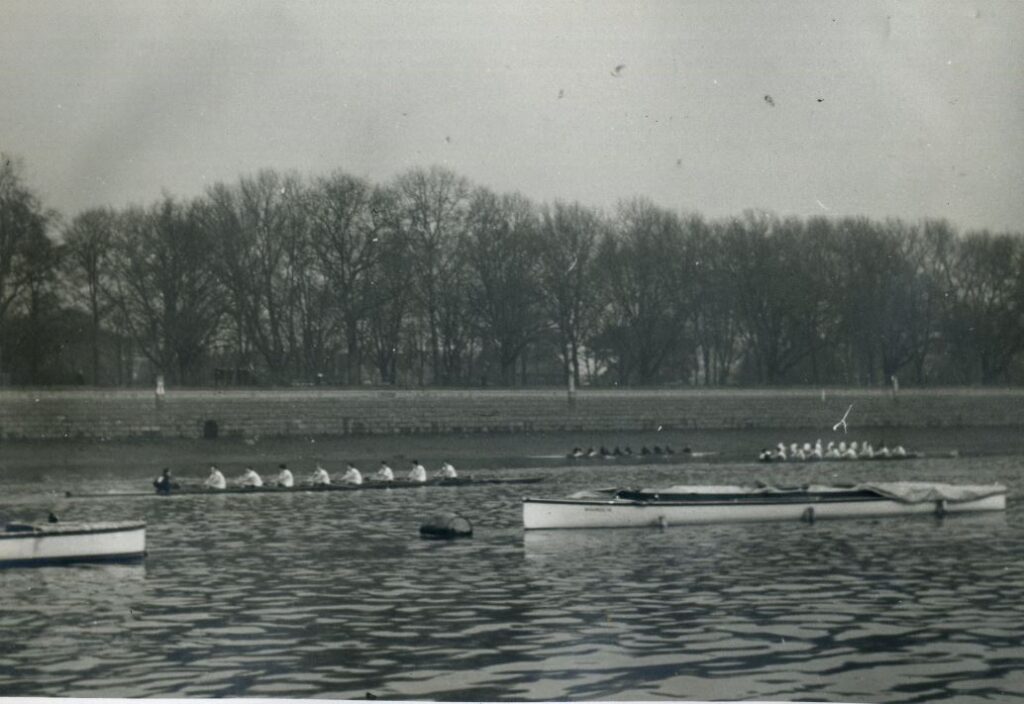
You also rowed in the first Emanuel crew to compete at Henley in 1962. What do you remember of that occasion? I think you narrowly lost in the second round.
It was little known at the time, but Jack Grundy was largely behind the decision to row at Henley. Derek proposed it but there was resistance from other masters as it was costly. However, Jack insisted and ensured that we would be able to stay for 2 weeks, a week prior for final training and the regatta itself. The 2nd VIII rowed our boat, “Tom”, to Maidenhead and we travelled there by train and stayed overnight at a local hotel. Derek had negotiated that we could all sleep in the dance hall of this hotel. It was a very enjoyable row up to Henley and soon we were storing our boat in the boat tent and making our way to the Sydney House Hotel on the edge of Henley, which we shared with Detroit Rowing Club. It was a friendly and cosy hotel serving excellent food and Derek had ensured the right protein and carbohydrate balance. We were amused when the Detroit members came in one day eating ice creams, except that instead of the usual cones they each had a family sized brick!
Training on the “track” was good and the relatively still water made it much easier. We were asked to pace the National Provincial Bank crew, among the best in the country at that time and favourites to win the Thames Cup.
We did get involved in one event. Imperial College had a plastic Guinness toucan as a mascot, and it was “stolen”. There was quite a fuss but then one morning it was found at the top of the Leander flagpole. I am casting no aspersions and offering no names but two Emanuel 1st VIII members were involved!
The first race was against Durham School, who had been cast as dark horses, but we were soon ahead off the start, another fast one for us. They held on grimly but around halfway we slowly inched away, and we could feel that good feeling as we finished 2 lengths ahead. The next day we were up against one of our old enemies, Hampton Grammar school. They powered off at the start and we found ourselves about half a length down but kept plugging away and kept coming back at them. However, at the finish they had just enough to hold us off by two thirds of a length. They were flat out in their boat and it affected their subsequent races. The eventual winner that year was Radley College who won in record time. We felt disappointed but we had rowed as well as we knew were capable and so it helped to ease the pain. We were allowed to stay at the hotel until Saturday and enjoyed watching the rest of the regatta. For a first attempt, it was felt to be satisfactory, and Derek was pleased.
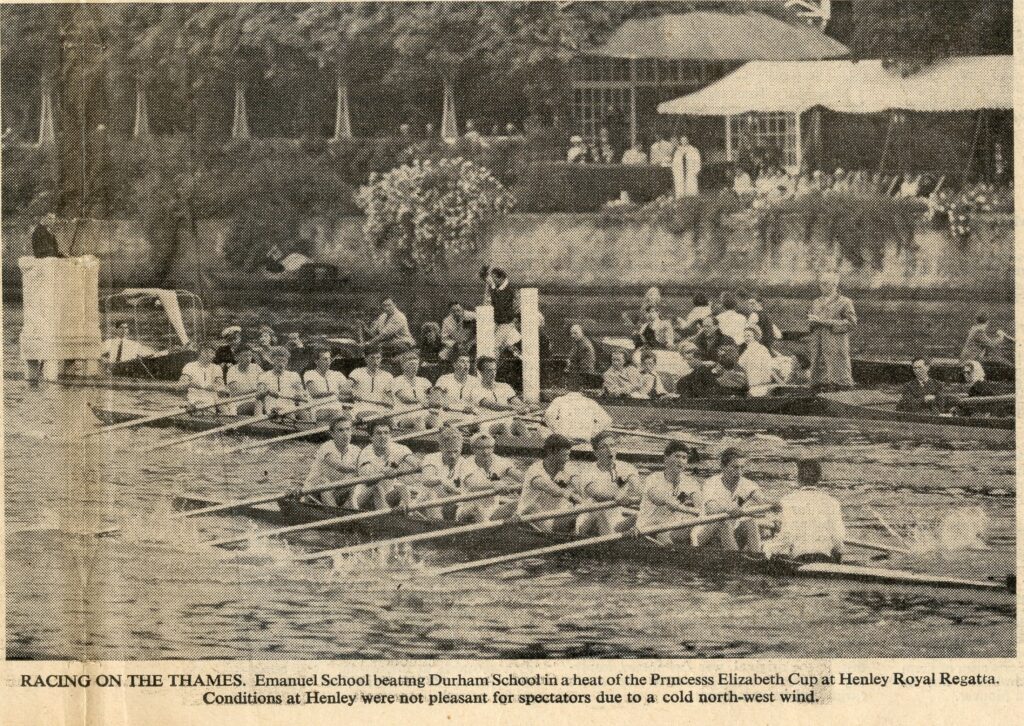
Which teachers do you remember fondly or had a positive influence on you?
The master who had most influence on my life was Derek Drury and he remained a friend until he died a few years ago. I learned about “team spirit” as much as anything else and also that to do well you had to work hard. Doc Ullyat also made an impression. His forthright and positive manner was effective, and I liked his no-nonsense approach. I remember in my GCE O level Physics exam, I was drawing a balloon rising in the atmosphere and eventually bursting and he couldn’t hold in his laugh when he saw it as he patrolled the hall!
Taffy Neath also made a good impression and I enjoyed having him as a form master and a Latin teacher.
Do you remember much about your rowing training regime? How much practice/hours might you put in in an average week?
In the two years I was in the 1st VIII, we trained hard twice a week and often in the evenings after school as well. We rowed in the dusk and had to have lights fitted so others could see us. Many a time I had to run over Barnes bridge to catch the last train. We used the new rowing tank under the boat house as well as going out on the river and we did a lot of training in sculling boats. I was pleased to win the senior sculling event and was awarded the John Cork trophy, which is still proudly on my bookshelf. (John Cork personally made the trophy which consisted of wooden book ends with a bow emerging from one end and the stern at the other.)
Did you row much in the 1963 season or when Emanuel retained the Schools’ Head of the River?
I rowed as much in 1963 despite it being my A level year. I continued in the first VIII and we retained the Schools’ Head title. In some ways it was harder because we had no one to overtake and just had to keep going at full speed without that “encouragement”. We did well during the year and rowed at Henley once more. We had a “bye” in the first round and so our first race was on the second day. Unfortunately, we were against the eventual winners, Nautical College Pangbourne, but we didn’t let ourselves down and pushed them harder than any other crew they subsequently raced.
My rowing at Emanuel set me up and because of that start I am lucky enough to have been elected a full member of Leander Club in 2008.
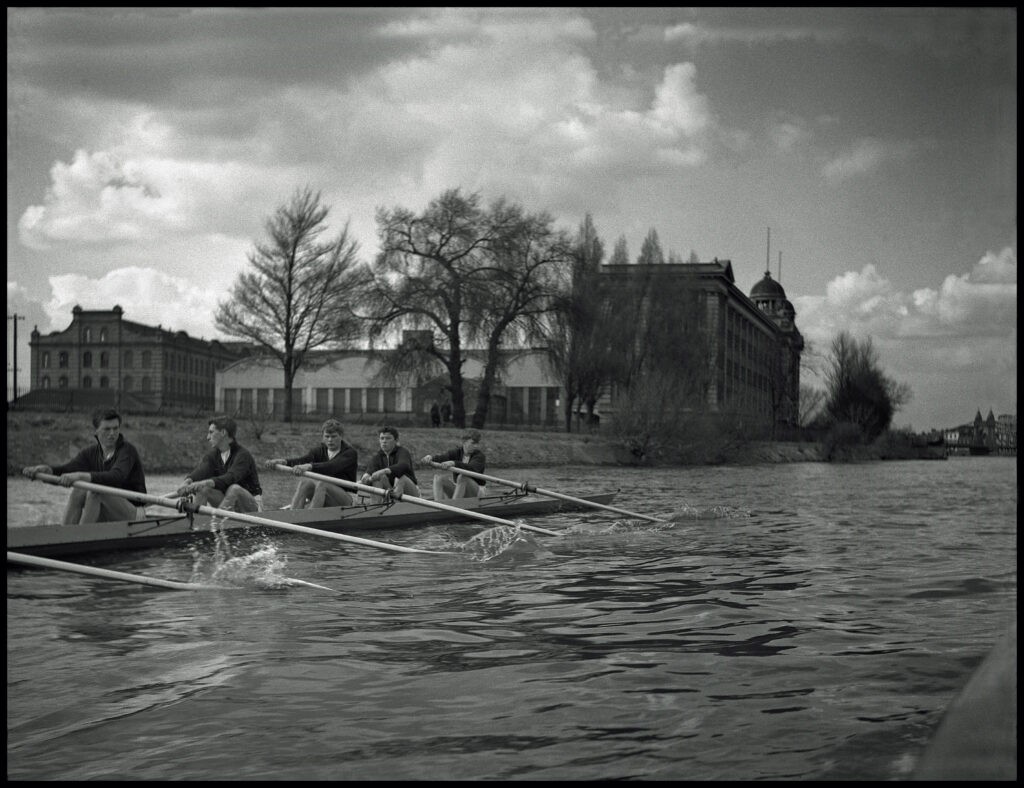
I truly believe that my time at Emanuel helped prepare me for all of this and any successes I have had can be traced back to my formative years whilst at Emanuel.
You were also in the RAF section of the CCF. Do you have fond memories of this?
I really enjoyed being a member of the Corps, the CCF. The first year was in the “basic section” or Army and we were fortunate enough to attend the largest mass camp of CCF and ATC cadets ever held at Aldershot. We lived under canvas for a week, and it was very enlightening.
Field Marshall Viscount Montgomery gave the address at the Drumhead service on the Sunday, and it was a very memorable time! However, I preferred the RAF section and I remember making my first ever flight in an RAF Britannia aircraft from Lyneham in 1960. It was memorable because during the flight we noticed that they were shutting down engines! It turned out that they were investigating the reasons for a BOAC Britannia aircraft crash in the previous year and it was believed that engine shutdown may have been a cause. Of course, we were assured that there was no danger to us!
I ended up as second in command of the RAF section; Garth Bennett (OE1957-63) was Flight Sergeant. During that time, we enjoyed amazing visits and stays on RAF stations, but one highlight was the School competing for best drill squad. Terry Kirkpatrick was in charge of my house squad and he decided that we would do continuity drill, where no commands were given. It was a first and we easily won the competition. The next year, we included some “tricks” from the American continuity squad and really moved our rifles around! We won again.
I learned so much from being a member of the school CCF. I won my Marksman badge as well as swimming certificates and the training complemented my Rowing training and the need for self-discipline.
Could you tell us a little bit about your Flying Scholarship and your Hoover Industrial University Scholarship?
During my final year, I was made aware of the RAF flying scholarship scheme, where they awarded a scholarship to be able to obtain a Private Pilot License. I had interviews and aptitude tests at RAF Biggin Hill and was awarded the scholarship along with Garth Bennett. We were based at RAF Sopley in Hampshire. As this was a radar station, we did our flying from Bournemouth airport and the training was subcontracted to a civilian firm flying Air Taxis. We flew in Cessna 172 aircraft rather than the tiger moths that some cadets used for their training. We stayed for 6 weeks and completed our required 30 hours. We took theory exams and had to demonstrate an ability to get out of spins and make emergency landings. We also completed long distance solo cross country flying. We would fly over to Sandown airport (a grass strip) to do our day-to-day work as Bournemouth was too busy. It was also a home to the British Aircraft Corporation where they were testing the first aircraft and we were lucky enough to witness its maiden flight. I was awarded my Pilot License at the end and also received my A level results while staying there.
We were encouraged to seek commercial sponsorship to help with university finances and a possible career afterwards. In those days, only around 4% of students went on to university and so we were lucky enough to get full funding from the government for our tuition and accommodation (subject to parental income means testing), but commercial sponsorship helped to make up any difference caused by means testing. I originally wanted to join the CEGB as an Electrical Engineer, as my father was, but after an interview with them, I felt it wasn’t right for me and discovered the Hoover scholarship scheme. Back then, companies used to provide apprenticeship schemes as well as management training schemes. They recognised the value of training and education and it was win/win because they then had first pick of suitable candidates. There was an interview and a group discussion, and I really enjoyed that process, eventually being awarded a scholarship. I spent much of that year after school between working with them in their training school and getting my results from Norwood Technical College.
I owe an enormous debt to Emanuel
You were House Prefect and gained Rowing Colours and School Colours. Looking back, how well did Emanuel set you up for life?
Looking back over my career and my life in general, I owe an enormous debt to Emanuel. It wasn’t my parents’ first choice for me as a secondary school, but it shaped my life in such positive ways. Many people didn’t like Jack Grundy but I think they failed to see his qualities and I am grateful to have attended Emanuel during his headship. He taught me the value of tradition and continuity. Of course, not all traditions were good but in general Jack Grundy ran an old fashioned school, even by the standards of the time. I learned to be proud of my school and by default to be proud of my country and to understand what that actually meant. I had detentions and had to write many lines and occasionally was sent to stand outside the classroom for mischief, but all that helped to emphasise the value of discipline which relied on team spirit as well. We were taught and shown what common sense meant in discipline terms and we learned, as prefects, how to manage others and how to apply rules and to see them as guidance rather than as rigid instructions. I was proud of all my awards at school and they also showed me the satisfaction of doing well and succeeding but always after hard work and dedication. All in all, Emanuel set me up for life in ways that I am still grateful for and I am proud to be an OE.
What career path did you follow?
I stayed with Hoover for many years, with a brief interlude at the safety testing company BEAB. I ended up as Chief Engineer, in charge of all the laboratories, for Hoover UK and moved on to other vacuum cleaner companies, Goblin and Vax, as Technical Director. I then joined a design Consultancy as Quality Director before finally setting up my own consultancy, Mearsdon Associates, in 2001. I became interested in Standards making while at Hoover and became Chairman of the UK National Committee and the International (IEC) committee for vacuum cleaner performance measurement. I joined the American standards organization, ASTM, in 1999 and ran their international vacuum cleaner performance committee. I remain a member of the IEC cleaner performance committee and I am still chairman of the UK National Committee at the BSI where I actively participate in all the work. I have also been a chairman of the local primary school governors and participate in arbitrating with vacuum cleaner performance claims in the media. I truly believe that my time at Emanuel helped prepare me for all of this and any successes I have had can be traced back to my formative years whilst at Emanuel.
Have you stayed in touch with many old friends?
Unfortunately, I have not been as close with old school friends as I may have liked but I am still in contact with Tony Wheel and John Spicer.
You’ve always been a great supporter of the OE Facebook page. Which type of stories do you like to read most?
I enjoy all stories of the success of Emanuel, and I follow as much of the rowing as I can. I am always pleased to see how much success so many OEs have had in their lives. I was privileged to share a form with Professor Goddard and his genius was quite a beacon to others.
How have you coped throughout the lockdown periods?
Discipline, in particular self-discipline, is of great benefit during lockdown. I have found it easier than most, perhaps, to follow the rules. Living through previous pandemics, including the Asian Flu pandemic while I was at Emanuel, has helped me stay sane during this one. I have now been fully vaccinated and been lucky enough not to have contracted Covid-19, which I can put down to that discipline I learned all those years ago during my seven years at Emanuel and understanding the true nature of rules and requirements.
All in all, Emanuel set me up for life in ways that I am still grateful for and I am proud to be an OE.


